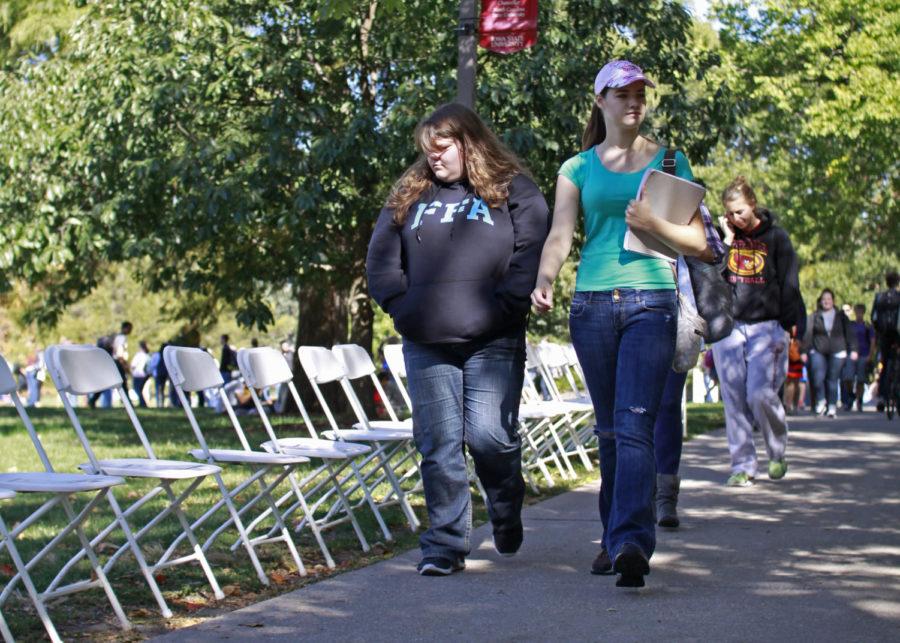Empty chairs raise awareness for domestic violence
October 9, 2013
Lines of empty white chairs met students as they walked from Margaret Sloss Women’s Center to the Memorial Union.
“Everyone plays a role on eliminating violence,” said Som Mongtin, interim director of Margaret Sloss Women’s Center.
Violence Leaves an Empty Chair at the Table was an event coordinated by the Margaret Sloss Women’s Center. It has been an event at Iowa State for the past eight years.
From 1995 to 2013, there have been 244 deaths in Iowa due to domestic violence.
The event was for students on campus to show awareness about domestic violence. The reason behind this event is to educate students and inform them that there are resources to help and support the fight to eliminate violence.
The Sloss House lined the walkway with 244 chairs from the Sloss House to the Memorial Union. The path was chosen particularly for the reason to inform students where the Sloss House is located and what services it offers students.
Trigger warning signs were placed on the chairs to inform students that the stories could be overwhelming. Flyers were handed out with a magnet, which had support services on it.
Purple ribbons were handed out throughout campus to represent domestic violence awareness.
Each of the 244 chairs held a story that represented a woman and her children, and spoke about how they died due to domestic violence. The information was provided by Iowa Attorney General’s office. The stories were organized in chronological order by year.
One of the stories read: “January 12, 2003, Karen Kay Duncan, 62, shot to death in Spencer by her husband Harold Duncan, 71. He then shot himself in the face in a suicide attempt. The perpetrator was found guilty of first degree murder. Three adult daughters survive the victim.”
Many stories told how the perpetrator would murder their victim and then would commit suicide. Others were imprisoned.
“It involves everyone,” Mongtin said. “The event is outside to show people, see it does happen.”
Matthew Drilling, one of the coordinators helping with the event, reached out through Assault Care Center Extending Shelter and Support [ACCESS] to have advocators from the Domestic Violence Service Department.
The advocators were there to help answer any questions or concerns from the students.
“It is absolutely an amazing event,” said Galady McCollum, first-year Domestic Violence Service Coordinator.
“It is a powerful display and message on how it can affect families.”







